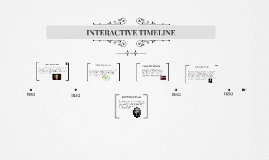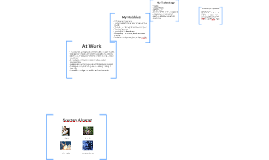Interactive Timeline
Transcript: Foreign Relations (1817-1823) America wanted to soothe relations with other world powers, especially those with land in the Americas. The Rush-Bagot Agreement aided peace between the US and British navies in the Great Lakes. Spanish relations were tenser, with the First Seminole War, but the Spaniards needed their military in Europe and South America. They realized that this meant they could not control the Seminoles and agreed to give East Florida to the US, in the Adams-Onis Treaty. As desire for freedom and unification in South America grew, President Monroe decided the US needed to support its neighbors and protect itself. Monroe issued the Monroe Doctrine, guaranteeing that the US would leave the South American colonies alone if the European powers did not try to retake their previous colonies or make more. Two Revolutions (1780s-1830s) The first major revolution was the Industrial Revolution, diffused to America from Britain. The Industrial Revolution was based on the switch from hand-made individual products to machine-made products made in mass quantities. This allowed more goods to be produced at once, so every business could increase its customer size. The new transportation system added on to this success, booming the economy. Next was the Transportation Revolution. Canals and railroads decreased shipping time and cost while creating the first national market. This led to city growth along canals, like New York City by the Erie Canal, as well as a major growth in the economy. Missouri Compromise (1820) In theory, the US was open to expansion and to receiving new land. In actuality, the north wanted more free states while the south wanted more slave states. Both hoped to tip the power in their favor. This was an issue when the Missouri territory applies to become a state of America. Henry Clay made a deal to appease both sides: admit Missouri as a slave state as well as Maine as a free state. Indian Removal Act (1830) From the beginning of colonization, Americans and American Indians experienced difficulty in cohabitating. Americans viewed the Indians as ‘savages’ who were unable to civilize and the American Indians could not comprehend the Americans’ system of selling, taking, and trading land, which they considered too religiously valuable to buy or sell. Many Indians became civilized and the Americans promised to leave the Indians’ land alone, until the Americans went back on their word. The Indian Removal Act was passed to relocate the Indians in Georgia to Oklahoma (modern-day). When the Indians resisted, they were forced to march 800 miles in harsh conditions. 4,000 of the 18,000 died along the way. This is viewed as a very dark mark in the history of the US. Whig Party (1834) This time period had been called ‘The Era of Good Feeling’ because of the political unity. However, after President Andrew Jackson made controversial tariffs, appointed pet banks, and contributed to the Panic of 1837, many Americans were not willing to stand behind him. This led to the creation of the Whigs, named after a previous British party who had resented the King’s power. This party called Jackson, “King Andrew” because he taxed the people (the tariffs), used his power to help his friends (pet banks), and seemed to pay too little attention (Panic of 1837). They nominated William Henry Harrison, a people’s man, who won by a landslide. Cultural Reforms (1790s-1840s) The Second Great Awakening started what appeared to be ‘the trend’ of cultural reforms. Many Americans searched for religious connection through revivals, which allowed individuals and society to reach perfection through closeness with God. During this time, denominations formed. Mormons and Shakers, fairly extreme religions, formed. These religions created utopias, religious communities of strict moral and social code. The next movement was Transcendentalism, which relied on avoiding material objects and living a basic life to reach a higher knowledge level. Both of these movements aided in the development of prohibition. Alcohol was seen as the cause of criminal behavior, leading many religious persons, especially women, to hope for its banishment. Women next stepped up to reform education. Public education grew so more children, even girls could go to school and so children could reach a higher level of education. Then, in the mid-1800s, women worked to successfully reform mental institutions, prisons, and poor-houses. This time was a time of great social change. Abolition (1830s-) Northern states were already free, but southern states remained strongly supportive of slavery. The farmers knew that slaves allowed them to make great money by saving on employee wages and because slaves were hard workers, meaning they helped increase product. During this time, many northerners, black and white, worked to spread the message of freedom for all. They argued that the Declaration of Independence and the Bible stressed equality, that slavery was a crime, and

















